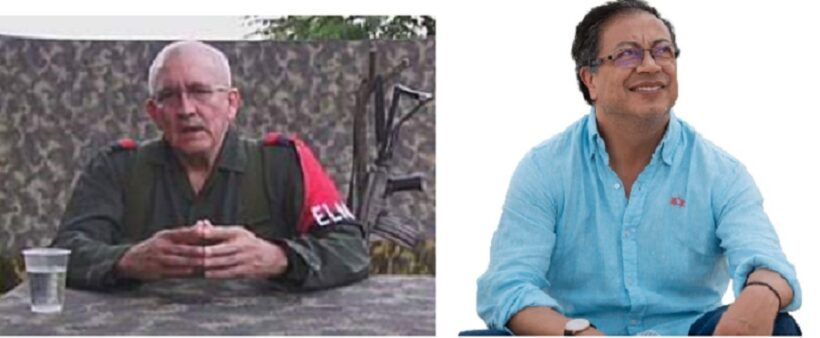The government of Gustavo Petro is seeking to resume peace talks with the National Liberation Army (ELN) in Havana, Cuba. The first rapprochement took place last Thursday, 11 August.
Foreign Minister Álvaro Leyva announced that he met with ELN representatives in the capital of the Caribbean country on Thursday. This meeting was also attended by Senator Iván Cepeda of the Historical Pact; Carlos Ruiz Massieue, special representative of the Secretary General and Head of the UN Verification Mission in Colombia; Jhon Otto, special envoy of the Norwegian government for peace; and Javier Caamaño, Cuban ambassador to Colombia.
With this meeting, Petro’s government hopes to achieve “total peace”. For this reason, Leyva indicated on his Twitter account that “Total peace is not only national, but goes beyond borders”.
In addition to this Tweet, the Colombian president, Gustavo Petro, explained on Thursday that he authorised the peace commissioner, Danilo Rueda, to contact the members of the illegal armed group who are in Cuba.
The process has come to a halt
Peace talks with the ELN began in 2017, during the government of Juan Manuel Santos. At that time, the talks were held in Quito, Ecuador, and then moved to Cuba. There, a series of meetings were held that would lead the guerrillas to lay down their arms and join civilian life and take responsibility for the crimes committed.
However, representatives of the ELN and the Colombian government left the table in 2019, when former president Iván Duque reactivated the arrest warrants against the 10 members of the peace delegation in the Caribbean country, following the attack on the Police Cadet School in Bogotá. This incident left 22 dead and more than 50 wounded. The attack was attributed to the guerrillas.
For this reason, days before Gustavo Petro took office as the new president of Colombia, the National Liberation Army announced on its website that it is willing to resume negotiations with the new government.
Venezuela a player in negotiations with the ELN
The ELN’s ranks have grown by approximately 700 fighters in the last five years. And since the end of July, this illegal army has expressed its interest in returning to the negotiating table with the new government.
Likewise, Petro, his advisors and analysts of the Colombian conflict have indicated that the reestablishment of consular relations and the opening of the Venezuelan embassy in Colombia are necessary for the negotiating table to come to a successful conclusion.
In addition, bilateral cooperation between the two actors must be re-established and both countries must open up completely in order to encourage trade and other sectors of the economy. A policy of cooperation between the two countries that focuses on security, attention to migrants, social issues, health, labour and education will also be necessary.






